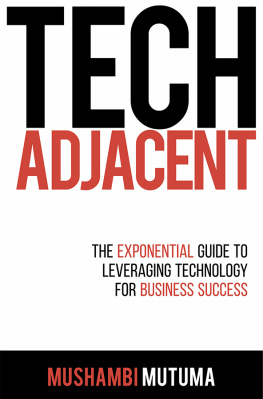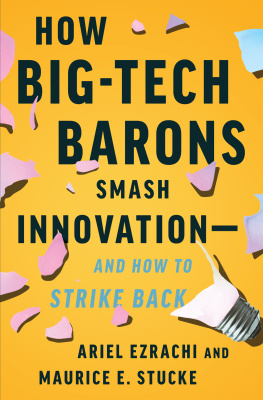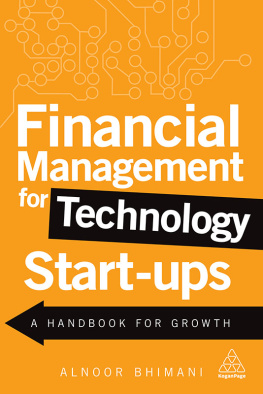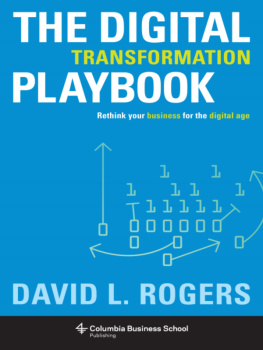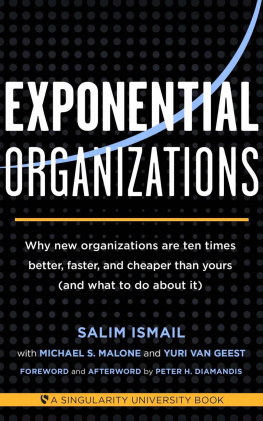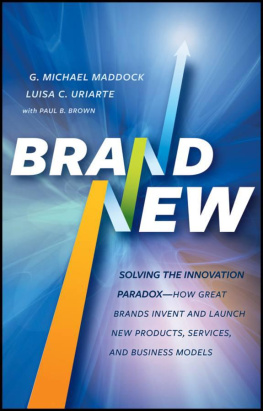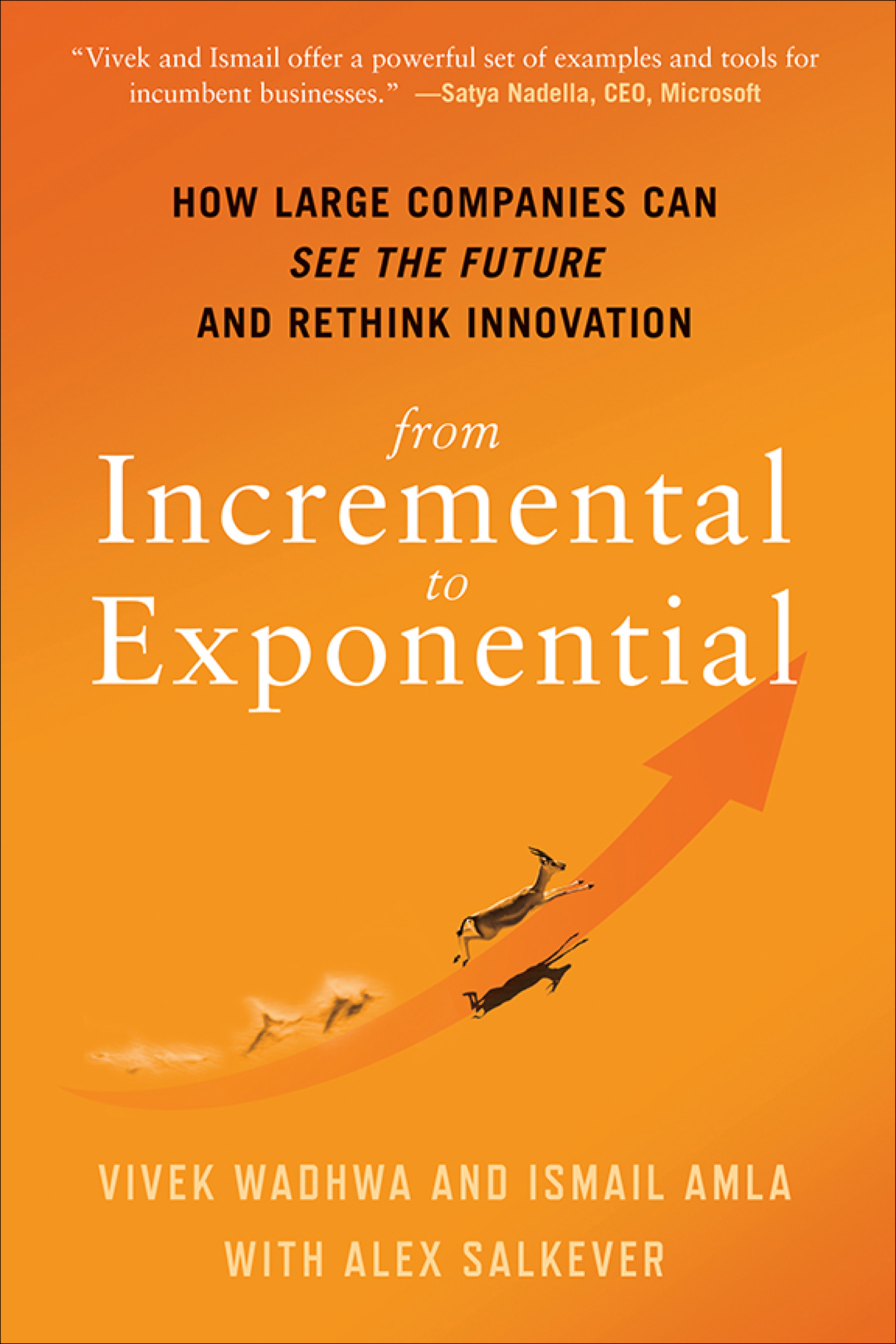Contents
Guide
From
Incremental
to
Exponential

From Incremental to Exponential
Copyright 2020 by Vivek Wadhwa, Ismail Amla, and Alex Salkever
All rights reserved. No part of this publication may be reproduced, distributed, or transmitted in any form or by any means, including photocopying, recording, or other electronic or mechanical methods, without the prior written permission of the publisher, except in the case of brief quotations embodied in critical reviews and certain other noncommercial uses permitted by copyright law. For permission requests, write to the publisher, addressed Attention: Permissions Coordinator, at the address below.

| Berrett-Koehler Publishers, Inc.
1333 Broadway, Suite 1000
Oakland, CA 94612-1921
Tel: (510) 817-2277, Fax: (510) 817-2278
www.bkconnection.com |
Ordering information for print editions
Quantity sales. Special discounts are available on quantity purchases by corporations, associations, and others. For details, contact the Special Sales Department at the Berrett-Koehler address above.
Individual sales. Berrett-Koehler publications are available through most bookstores. They can also be ordered directly from Berrett-Koehler: Tel: (800) 929-2929; Fax: (802) 864-7626; www.bkconnection.com
Orders for college textbook/course adoption use. Please contact Berrett-Koehler: Tel: (800) 929-2929; Fax: (802) 864-7626.
Distributed to the U.S. trade and internationally by Penguin Random House Publisher Services.
Berrett-Koehler and the BK logo are registered trademarks of Berrett-Koehler Publishers, Inc.
First Edition
Hardcover print edition ISBN 978-1-5230-8956-7
PDF e-book ISBN 978-1-5230-8957-4
IDPF e-book ISBN 978-1-5230-8958-1
Digital audio ISBN 9978-1-5230-8959-8
2020-1
Book producer: BookMatters; Text designer: BookMatters; Cover designer: Rob Johnson, Toprotype, Inc.; Copyeditor: Hope Steele; Proofer: Janet Reed Blake; Indexer: Leonard Rosenbaum
I dedicate this book to my late beloved wife, Tavinder. My soul mate, she continues to guide me in all earthly endeavors and to inspire my drive to create positive change.
Vivek Wadhwa
With deepest love and gratitude to my parents and my family and respect for my many teachers at CSC, Accenture, Capco, IBM, and now Capita. In memory of Hazrat, who shaped the lives of so many.
Ismail Amla
CONTENTS
PART I
Why Exponential Disruptions Are Happening More Quickly and More Often
PART II
Why Top-Down Innovation Efforts Usually Fail
PART III
Ways to Build Innovative, Exponentially Developing Companies
PREFACE
We, Vivek and Ismail, have lived parallel existences in the technology world. One of us, Vivek, came up through the world of software and startups and has spent the last decade and a half as an academic. In that role, Vivek has advocated entrepreneurship and researched and taught on exponentially advancing technologies such as artificial intelligence (A.I.), computing, digital medicine, robots, sensors, synthetic biology, and quantum computing. Vivek often warned that incumbent megacorporations are soon to be toast; he was skeptical that they could adapt quickly enough to keep abreast of technology changes and compete with startups. Hoping he could help legacy companies that wanted to improve their chances of survival, Vivek created a methodology to teach big companies how to be more innovative using the very same tools and mindsets that foster hypergrowth in startups.
During the same period, Ismail focused on the world of technology consulting, working at large blue-chip firms such as IBM and Accenture. In those roles, he coached those same megacorporations in how to make better use of technology to improve their bottom lines and business processes. Ismail was teaching them how to avoid becoming toast.
And both of us learned how difficult it is to get megacorps to behave like startups.
But an interesting thing has happened over the past decade. We both began seeing clear signs of large, positive changes in the giant companies we advised. For his part, Vivek began spending more time with the giant corporations that he believed were facing extinction. He observed that some were not only surviving but even thriving. They were transforming themselves into innovation powerhouses, unconstrained by the traditional laws of large numbers. Initially, large tech companies such as Google and Microsoft had figured out how to scale up their innovation practices and maintain the type of agility and experimental environment that encourages continuous reinvention. Then a handful of legacy companies in the slowest-changing industries, such as Walmart and NextEra Energy, began to make real progress toward reinvention by embracing an innovation culture. Vivek was intrigued.
From the business side, Ismail felt change in the air when many of the large companies he was advising began to wield their strengths to spur innovation. Legacy companies may be slow and bureaucratic; yet Ismail noted that they also possess mountains of the most valuable currency of the 21st century: data. They also have highly experienced, networked executives and well-honed sales and marketing channels useful for distributing revolutionary new products. The most innovative of these legacy companies use the best practices of Silicon Valley to develop products and innovate rapidly; this lets them compete on an even footingeven at an advantagewith upstarts seeking to invade their turf.
For example, in December 2018, online retailer Amazon made clear it had plans to bring its automated, cashierless Amazon Go stores to the United Kingdom in the near future. In fact, Sainsburys executives had long been exploring cashierless technology and planning for precisely this event. Recognizing Amazon as an existential threat, the grocery giant activated its innovation plan and adopted a mindset that allowed it to move quickly and embrace newer technologiessomething that grocery chains are hardly known for.
Such breakthrough responses represent trends and provide paradigms that we believe can benefit legacy enterprises, very few of which have mined the rich vein of thought, strategy, and opportunity that many startups and other innovative companies have pioneered. While this book is written primarily for executives and managers at these legacy companies, in reality anyone who wants to learn about applied innovation can benefit by applying the analytical approaches and innovation tools that the innovators have invented.
Some executives and managers have already familiarized themselves with the successes of Google, eBay, PayPal, and Facebook. Very few, though, are up-to-date on the newer-generation disruptors such as Tencent, Zoom, Airbnb, and Deliveroo and their best practices for innovation and agility. Understanding these approaches can empower large organizations from public institutions to nonprofits and social enterprises as well as corporations to rapidly adopt methods and mindsets that will enable them to increase their growth by making them more responsive to their environment.


